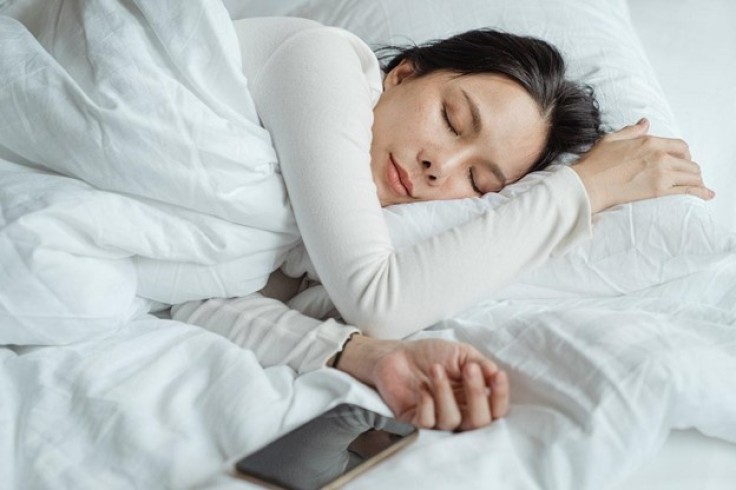
Our power naps are about to get a lot more high-tech, judging by the unprecedented growth of the sleep tech market. According to data from GM Insights, the size of the sleep tech market reached $10.9 billion in 2019, and, in the following six years, it's on track to expand even more. By the latest estimates, the market will achieve 16.6% CAGR by 2026 and exceed $32.1 billion. Tech innovations are the primary cause behind this incredible growth, but they're not the only factor worth analysing. Powered by the COVID-19 crisis, awareness on the importance of a restful night's sleep is higher than ever, and consumers are ready to pay extra for features that help them sleep better and for longer.
The growth of the sleep tech market started with wearable devices, but, in the past years, we've also seen exciting innovations coming from the smart mattress sub-sector.
The increasing popularity of wearable devices is propelling the sleep tech sector.
For a long time, wearable sleep trackers were used exclusively in the medical sector. However, with the launch of the first smartwatches, the technology slowly penetrated the consumer market, and the same features that used to be reserved to healthcare professionals are now at our wrists. In the following two years, the global wearables market is set to reach $84 million. Apart from counting steps, keeping track of workouts, and connecting with your smartphones, smartwatches can also monitor your sleep. While they cannot directly help you sleep better, they can analyse your sleeping patterns and give you essential insights on aspects such as:
● Your total hours of sleep and how much time you spend in each stage. This way, you know for how long you were actually asleep and how much you spent tossing and turning.
● The quality of your sleep. More specifically, the sensors in the watch pick up your movements, indicating whether your sleep is restless or restful.
● Health metrics such as your heart rate.
You can show this data to a healthcare professional, who can then make an accurate diagnosis and recommend you the right treatment.
What's more, sleep trackers can connect to your smartphone so that the alarm makes you up gently, depending on what sleeping stage you're in.
Smart mattresses are revolutionising sleep.
Every year, millions of people complain of backaches, headaches, and fatigue, without knowing that their mattress might be the one causing the issue. Research has shown that sleeping on an ageing mattress not only reduces comfort and thus sleep quality, but also puts pressure on your spine by forcing it to stay in an unnatural position.
If you still have the same mattress that your bed came with fifteen years ago, you might not associate mattresses with technology, but, in the past years, the two have had an exciting connection. These are the most innovative features that mattress manufacturers have incorporated in their designs:
● Hybrid eco-friendly materials made from recycled goods. Contrary to popular belief, sustainability doesn't have to sacrifice comfort. On the contrary, eco-friendly mattresses are just as comfortable, and they're also healthier because they reduce exposure to the harmful compounds found in polyurethane and plastics.
● Custom mattresses with adjustable temperature. Everyone has different sleeping preferences, and the temperature is perhaps the most divisive topic. With these high-tech mattresses, you can adjust the temperature as you see fit.
● Adjustable firmness. Some health conditions require you to sleep in a specific position, on a softer or firmer mattress. In general, the recommended firmness is 5-7 in the firmness range, but that level can vary depending on how you sleep. For example, stomach sleepers prefer a firmer mattress, while back sleepers a softer one. If you're a light sleeper or have trouble falling asleep, a softer mattress is also recommended because of the way it "hugs" your body. Adjustable mattresses allow you to easily change the firmness, depending on your needs that night, so that you don't have to worry about changing your mattress.
● Memory foam technologies continue to become more sophisticated and provide unparalleled levels of spine support.
For the vast majority of consumers, changing their bed frame and mattress with newer, more ergonomic options is enough to raise sleep quality significantly. However, a growing percentage of tech-savvy users is beginning to show interest in high-end mattress technologies, and it's these early adopters that encourage manufacturers to pursue new innovations.
The incidence of sleep disorders is rising - and so is awareness of high-quality wellness solutions.
The evolution of the sleep tech market is invertedly tied to the rising incidence of sleep disorders. Studies show that only 30% of adults in the UK would describe themselves as good sleepers and, in the US, more than 50 million people are struggling with sleep disorders such as chronic insomnia and obstructive sleep apnoea. Optimising the sleeping environment is key in achieving a restful night's sleep, and, people become more aware of this, the demand for sleep tech solutions will continue to grow. Another factor that has been linked with the advent of sleep tech is the Baby Boomer population that's approaching retirement age. That's the equivalent of 73 million people, who are more susceptible to experiencing back pain and Musculoskeletal issues and need specialised wellness solutions from the sleep tech market.
And seniors aren't the only ones that favour the market expansion. Other vulnerable categories, such as students who are facing high stress levels, pregnant women undergoing hormonal changes, and people with disabilities also need specialised wellness solutions, and the sleep tech market is rapidly adapting.
Interestingly, the direct-to-consumer segment is the main source of revenue for the market in 2020, followed by speciality clinics, hospitals, and others. This goes to show just how much awareness has increased. In a post-pandemic world, where consumers understand the importance of good mental health and are willing to invest more in wellness, sleep trackers, and high-end mattresses are part of a new generation of products.









